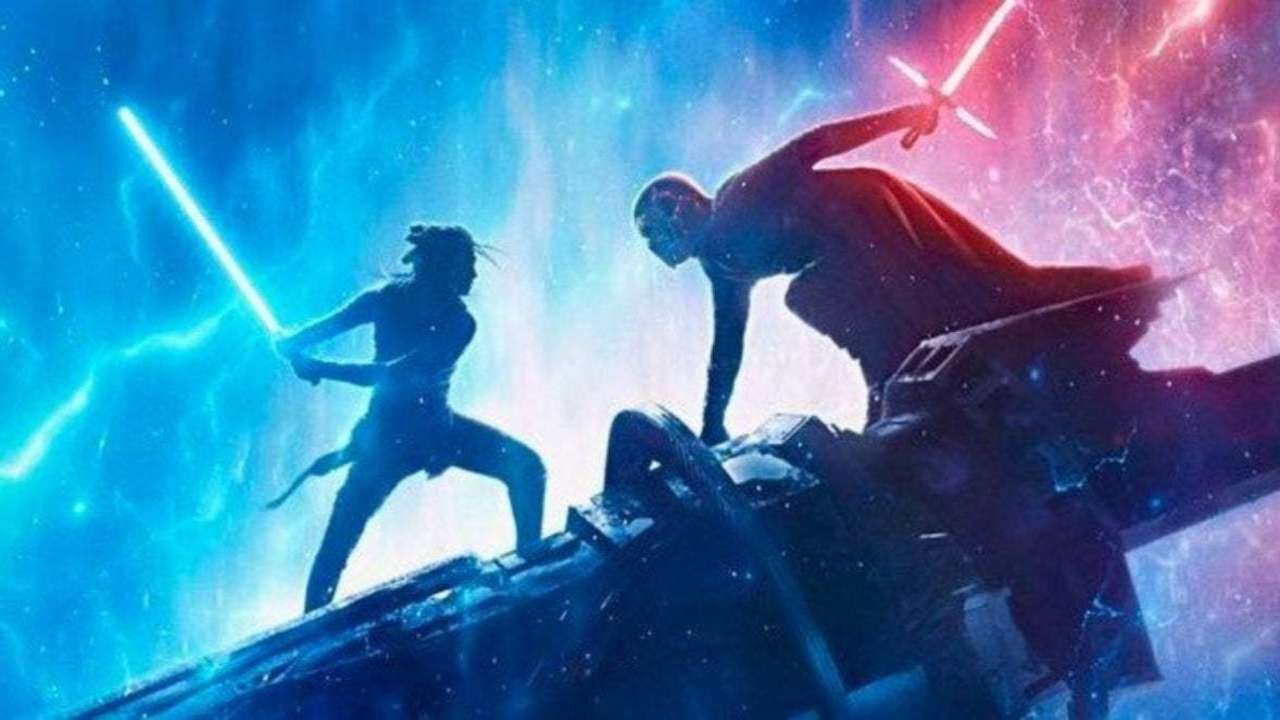GamesRadar+ Verdict
Tries to fit in so much it threatens to tear apart at the seams, but ultimately rises to the impossible occasion.
Why you can trust GamesRadar+
A long time ago, in a galaxy far, far away (Los Angeles, 1973), George Lucas saw his 13-page treatment for a space opera titled The Star Wars turned down by United Artists, Universal Pictures and Walt Disney Productions before Alan Ladd Jr., the head of 20th Century Fox, was persuaded to invest. Lightspeed past the 42 years since Star Wars was released in May, 1977, and you arrive at a time when the nine-movie Skywalker saga has shaped cinema, pop culture, generations. And now lands the film that concludes not just the story arcs unfurled in The Force Awakens and The Last Jedi, but those running through a trilogy of trilogies. How can director/co-writer J.J. Abrams orchestrate such a feat, satisfactorily?
Well, he manages it, for the most part, and in a manner that should placate the fanboys outraged by the (thrilling) ‘liberties’ Rian Johnson took in The Last Jedi, while being unafraid to exercise bold choices and surprises of his own. To quote Luke Skywalker in Episode VIII, “This is not going to go the way you think.”
Star Wars: The Rise Of Skywalker opens with the familiar yellow crawl, this time informing us of a mystery broadcast that could have galaxy-spanning repercussions… To say much more of the serpentine plot would be to enter spoiler territory and risk a Death Star, or at least death stares, trained in this direction.
“Nothing is impossible,” Leia tells Rey, with the late, great Carrie Fisher brought back to our screens courtesy of seamlessly repurposed unused footage from Episode VII. Abrams and his co-writer Chris Terrio might disagree, however, for the first half-hour of their screenplay is so laden with plot and exposition that it struggles to get rolling.
Some of the bantz between Poe (Oscar Isaac) and Rey also stutters, and there is a surfeit of characters: all of the aforementioned plus old favourites Finn (John Boyega), Chewbacca (Joonas Suotamo), C-3PO (Anthony Daniels, with more to do this time), R2-D2, Maz Kanata (Lupita Nyong’o) and Rose (Kelly Marie Tran); returning Star Wars royalty Lando Calrissian (Billy Dee Williams), who was last seen in Return Of The Jedi; and several newbies, including Richard E. Grant (channelling Peter Cushing as baddie Allegiant General Pryde), Naomi Ackie (Resistance ally Jannah), Keri Russell (Zorii Bliss, who has past history with Poe) and, distractingly, Dominic Monaghan (Resistance soldier Beaumont Kin).
There are also, naturally, plenty of new ’bots and beasts, with a tiny droidsmith named Babu Frik damn near stealing the show. It’s a right old jostle, and the knockabout tone of some of the humour might just reignite the ire of those who rolled their eyes when Poe put General Hux (Domhnall Gleeson) on hold in The Last Jedi.
Bumpy as the ride sometimes is, though, no one can accuse Star Wars: The Rise Of Skywalker of stinting on action, emotion, planet-hopping, callbacks, fan-servicing, or, well, anything Star Wars, as Abrams goes for maximalism laced with classicism. There are landspeeders that look like the heavy-duty Batpod in The Dark Knight, jet-packing Stormtroopers (“They fly now?”), lightsaber duels a go-go, gigantic, tumultuous dogfights, gun battles that light up the steely blue corridors of spaceships with zapping red lasers, Rey riding a skimmer over waves bigger than the one that claimed Bodhi at the end of Point Break… And yet the very best moments are the quiet ones, which bob gently on the swells of John Williams’ iconic music to elicit shivers like only Star Wars can. And best of the best is the end of the end, a tear-summoning scene that offers the perfect curtain drop.
After nine Episodes in which good and evil have strengthened and waned as surely as the quality has soared and plummeted, we end at just the right place, with balance in the Force.
Jamie Graham is the Editor-at-Large of Total Film magazine. You'll likely find them around these parts reviewing the biggest films on the planet and speaking to some of the biggest stars in the business – that's just what Jamie does. Jamie has also written for outlets like SFX and the Sunday Times Culture, and appeared on podcasts exploring the wondrous worlds of occult and horror.



